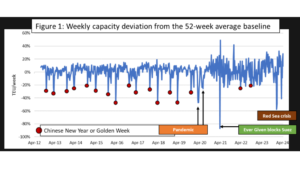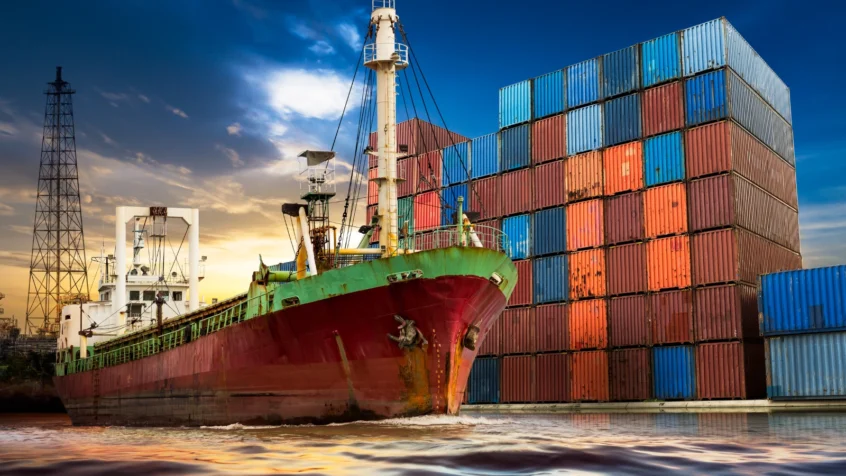The global logistics sector is grappling with significant challenges due to recent upheavals in the Red Sea region. Carriers, attempting to steer clear of attacks by Iran-backed Houthi militants in Yemen, have redirected over $200 billion in trade away from this vital maritime corridor, a move reported by NBC. This strategic shift in shipping routes is having far-reaching effects on international trade.
Compounding this situation is the underutilization of shipping capacity. According to industry reports, about 20% of vessel capacity remains unused due to a substantial drop in manufacturing orders. This reflects broader economic uncertainties and is impacting global supply chains.
These challenges are having tangible effects on major companies. Global logistics firms Tesla, Volvo, and Michelin, face production delays due to these shipping disruptions. Retailers such as IKEA are also issuing warnings about delayed product availability, reminiscent of supply chain issues during the COVID-19 pandemic.
The crisis in the Red Sea is even more impactful on supply chains than the early stages of the pandemic, as per maritime advisory firm Sea-Intelligence. The only recent event to surpass this in terms of impact was the “Ever Given” incident in the Suez Canal in 2021. The rerouting of ships around the Cape of Good Hope significantly impacts vessel availability for container pickup. However, unlike the pandemic period, there is currently excess vessel capacity, which could be deployed to alleviate the situation.

Source: Sea Intelligence
The Gemini alliance between Maersk and Hapag Lloyd signifies a strategic realignment in the container shipping industry. This alliance is set to influence shipping rates and availability, with long-term consequences for international trade.
The current Red Sea crisis highlights the need for stable, secure shipping routes and the interconnectedness of global logistics. As the industry navigates these challenges, businesses and consumers must remain informed and adaptable to the evolving trade dynamics.
The upcoming Golden Week in China, traditionally a time of reduced shipping activity due to national holidays, could add another layer to the complexities of the current logistics situation. During this period, manufacturing and shipping operations slow down, impacting global supply chains.
This year’s Golden Week might have a different impact compared to previous years due to the existing challenges in global logistics, especially in the context of the Red Sea crisis and the realignment within the shipping industry. The interplay of these factors could lead to further adjustments in shipping schedules and capacities.

